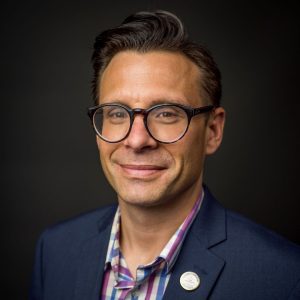The recent political turmoil surrounding the Los Angeles city council has opened old wounds, exacerbated racial divisions, and revealed destructive attitudes motivating political decisions. It has also underscored a sad reality so few people seem to realize. Racism is not confined to any one group nor expressed exclusively between any two groups. Racism is a pernicious evil found among every people group—and the objects of hate are sometimes surprising to outsiders.
One of my quiet inquiries (as part of learning to work in a multicultural community) is asking my friends of different ethnicities who their group is prejudiced against. These are delicate conversations which only happen after years of trust has been built. My question is usually phrased this way, “When people in your community are being honest, who do they talk about in a prejudiced way?” The answers have helped me to map historic lines of racial prejudice and understand the underlying tensions among many of the groups who work together at Gateway Seminary.
Racism is real. It can be personal, systemic, and institutional. But it is not an unpardonable sin and it is not an unchangeable pattern. Racists can repent and change. People from different backgrounds can learn to value each other, respect each other, and work together toward a shared mission. When we do this, we discover the strengths that comes from our diversity and are enriched—not threatened—by the differences we bring to the team.
Secular attempts—by whatever means, program, or theory—are falling short of accomplishing this ideal. The recent debacle mentioned above is the latest example. Leaders supposedly schooled in the best methods for addressing racism in our culture voiced despicable racist comments.
So, how do people come together in true unity? Through the gospel. The solution to racism begins with repentance and new birth through Jesus Christ. Overcoming racism, subsequent to conversion and as part of Christian growth, means learning every person from every race is made in the image of God and deserves value and respect. And, when racism has been enshrined in systems, Christians can reform or resist those systems. The gospel changes us as individuals and then changes how we treat others—both in person and in community.
In our world today, almost everyone acknowledges racism as a problem. Various solutions have been proposed, but judging by the results we are seeing on campuses, in boardrooms, and among political leaders—they are not working. The gospel is. The evidence is all around us in multicultural churches, multilingual denominations, and Christian organizations like Gateway Seminary. While critics highlight the failures among Christians on racial issues, they ignore the overwhelming evidence of the gospel’s power to bring people together.
At Gateway, our diverse workforce and student body come together every day to accomplish our mission. Our togetherness rests on our shared personal experience with Jesus Christ and our determination to apply the gospel in relationships. We do not get it right all the time, but our institutional success resulting from connecting people from so many cultures demonstrates we are getting it right much of the time.
Christians are not perfect in overcoming racism. But the evidence of our success in doing so far eclipses our failures. The gospel is the solution to racism. Recent events underscore the urgency of the need to infiltrate communities more aggressively with this liberating message.
Read More

Hope in Suffering
Gateway student Matt Bodden is an evangelist who is ready to answer the question of suffering with the gospel.

The Gateway Journal of Theology Inaugural Issue
Read all new articles in the inaugural issue of The Gateway Journal of Theology.
Listen
Prophets | Daniel Part 2
Now with the historical portion of Daniel done, Dr. Wegner takes us through the visions of beasts and years. All these figures intending to show us something. What does it all tell us about God?

Theology and Missiology with Dr. Peter Lillback
Rev. Dr. Peter Lillback, president of Westminster Theological Seminary, PA, and founder of The Providence Forum, joins Dr. Hopkins to chat about the inclusion of young children during the main services in church, the religion and theology of George Washington, and the

Watch

Jonathan Edwards and the Asbury Revival
Chris Chun and Chris Woznicki discuss the signs of true revival, signs of the work of the Holy Spirit, and why it is important to critically assess the characteristics of revival in a spirit of charity.

Jonathan Edwards and the Baptists | Douglas Sweeney, Nathan Finn and Chris Chun
Dr. Douglas Sweeney and Dr. Nathan Finn joined Dr. Chris Chun for a panel discussion on Jonathan Edwards, recorded live at the SBC Annual Meeting in Anaheim.




